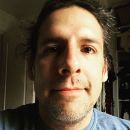Creating Change Through Conversation: Reflections from Our Indigenous-Led Anti-Racism Training

Posted date: June 18, 2025 |
By Sasha Delorme, Chair of the Indigenous Patient Circle, Diabetes Action Canada
What am I doing to create change in this world—for my children, and for future generations? I’m working to make space for honest, open conversations about racism. And not just conversations—transformative ones.
Earlier this spring, the Indigenous Patient Circle (IPC) hosted its second anti-racism training workshop in Magog, Quebec. What made it particularly powerful was that the entire day was planned and facilitated by patient partners.
A small group of eight of us boarded a shuttle at 7:30 a.m., making the 90-minute drive to a quiet ski resort in Magog. By 9:00, we were setting up for a full day of learning and dialogue with research trainees and health system professionals.
Before the day officially began, I had the honour of meeting Elder Gregoire Canapé, who welcomed me with warmth and kindness—taking my hand and gently pressing his cheek to mine, first on the left, then on the right. In keeping with protocol, I offered him tobacco in gratitude for the teachings and prayers he would share with us that day. (As a reminder: it’s customary to offer tobacco when requesting prayers, teachings, or guidance from an Indigenous Elder.)
We opened the workshop, as always, in circle. The circle symbolizes unity and equality, and it creates a safe space for everyone to share their experiences, thoughts, and questions freely.
Elder Gregoire began by smudging the room and sharing stories, teachings, and a prayer and song in his language. His presence filled the space with calm and joy—his teachings were met with smiles and quiet reflection. And since he spoke French fluently, one of our team members stepped in with some spontaneous translation—bringing both clarity and a few moments of laughter.
Later, we welcomed Elder Barb Nepinak to the circle. She shared teachings on the importance of water, the significance of tobacco, and demonstrated how to make a tobacco tie—reminding us of the ceremonial elements that ground our work in community, respect, and tradition.
We also heard from guest speakers: an anti-Indigenous racism facilitator from the First Nations Health and Social Services of Manitoba (FNHSSM), and the Indigenous Initiatives Manager from the CKD Network. They spoke about Indigenous cultural safety and the resources their organizations are creating to better support care and research in Indigenous contexts.
Our facilitators—each of them Indigenous patient partners—shared their lived experiences of racism in healthcare. These stories were powerful and at times difficult to hear. In hindsight, we realized that some content could have benefited from a trigger warning, and we’ll be more mindful of that in future sessions.
At the end of the workshop, we asked the participants—many of whom were research trainees—what they had learned. Their reflections were raw and honest. Several admitted they had never been taught the true history of colonization or how it continues to shape the health of Indigenous Peoples today.
That moment reminded me why these workshops matter. They don’t just teach cultural practices—they invite a reckoning with history. They build bridges between lived experience and structural change. They are, in every way, a step toward reconciliation.
If you ever have the opportunity to attend one of our anti-racism workshops, I encourage you to come with an open heart. The journey toward change begins with listening—and continues with action.
Featured in Article
Mike Alexander
Associated Programs



